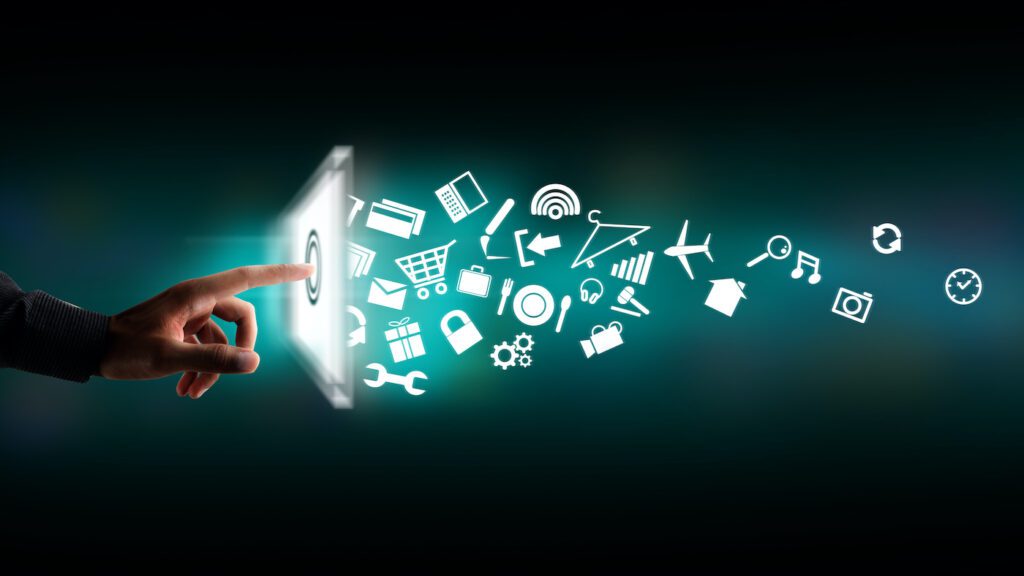Modern technology, with its rapid advancements and innovations, has woven itself into the fabric of business and daily life. It’s changing how we interact, make decisions, and even perceive the world. As we navigate this digital age, it’s important to understand how technology shapes our societies, economies, and individual lives.
In today’s interconnected world, modern technology is reshaping everything around us, from how businesses operate to the way we socialize. It has opened new doors, changed traditional norms, and brought innovative solutions to age-old challenges. Understanding these changes and their effects on business and society is crucial to navigate the future successfully.
1. The New Era of Automation
Automation is the key driver transforming many industries. Manufacturing lines are now populated by robotic arms, and software bots are handling repetitive tasks in banking and customer support. By automating routine work, businesses can save time and focus on innovation, improving efficiency and productivity. This transition, however, has sparked debates around potential job displacement.
2. Digital Transformation and Connectivity
The explosion of high-speed internet and mobile devices has brought the world closer, allowing businesses to connect with customers like never before. Digital transformation has become the bedrock for growth, with companies leveraging online platforms to expand their market reach and deliver tailored experiences to their global audience.
3. Artificial Intelligence and Data

Artificial intelligence (AI) is more than a buzzword; it’s now integral to decision-making across industries. With data as the new “oil,” businesses rely on machine learning algorithms to predict consumer trends, optimize logistics, and provide personalized recommendations. However, questions around data privacy and the ethical use of AI still loom large.
4. Remote Work Revolution
Remote work, once an emerging trend, has solidified its place in the corporate landscape. Video conferencing, cloud computing, and collaboration tools have enabled seamless productivity from anywhere. This newfound flexibility offers work-life balance but also demands a reimagined approach to managing teams and measuring performance.
5. E-commerce and Consumer Behavior
E-commerce has redefined how people shop, challenging brick-and-mortar businesses to reinvent themselves. The convenience of shopping online, coupled with tailored recommendations and lightning-fast deliveries, has empowered consumers. This shift necessitates new strategies for customer engagement and loyalty.
6. Digital Finance and Fintech
Fintech is a game-changer in finance, democratizing access to financial services. From mobile banking to peer-to-peer lending, technology is making it easier to manage money and invest. Cryptocurrencies and blockchain have added new dimensions to this sector, though regulatory challenges remain.
7. Social Media’s Impact on Society

Social media has given everyone a voice and a platform. It has revolutionized marketing, allowing brands to engage directly with their audience. However, it also brings challenges, such as misinformation and the potential for addictive behaviors, that require careful consideration.
8. Modern Technology in Education
Education has benefited immensely from technological advances. Online learning platforms, virtual classrooms, and AI-driven tutoring are making education more accessible. However, digital divides and screen fatigue also highlight the need for balanced technology integration.
9. Environmental Sustainability
Modern technology is not just a driver of economic growth but also a key to environmental sustainability. From renewable energy solutions to smart grids and efficient transportation, technology is providing innovative ways to reduce our ecological footprint. Green technology is proving to be a crucial ally in the fight against climate change.
10. Cybersecurity Challenges
As businesses and individuals become increasingly digital, cybersecurity risks grow. Cyberattacks, data breaches, and identity theft have underscored the importance of robust cybersecurity measures. Companies are now prioritizing data protection and regulatory compliance to protect sensitive information.
Conclusion
Modern technology is reshaping business and society in unprecedented ways. It offers immense opportunities, whether by improving efficiency through automation or by enhancing connectivity with digital transformation. However, it also brings challenges like job displacement, data privacy concerns, and cybersecurity risks. Striking a balance between leveraging technology and managing its impact is crucial as we navigate this digital age.
FAQs
1. How is modern technology changing the workplace?
Modern technology is enhancing productivity through automation, enabling remote work via digital tools, and fostering collaboration through cloud platforms. It also requires new skill sets and has shifted hiring trends.
2. What is digital transformation, and why is it important?
Digital transformation involves integrating digital technologies into all areas of business, fundamentally changing how companies operate and deliver value to customers. It’s vital for staying competitive and meeting evolving customer expectations.
3. What role does artificial intelligence play in business?
AI assists businesses by analyzing vast amounts of data, providing predictive insights, personalizing customer experiences, and automating decision-making processes, thereby improving efficiency and reducing operational costs.
4. How has e-commerce influenced consumer behavior?
E-commerce has made shopping more convenient, allowing consumers to compare prices, read reviews, and receive products quickly. It has led to higher consumer expectations regarding product availability and delivery times.
5. What are the main cybersecurity concerns with modern technology?
Key concerns include data breaches, identity theft, phishing attacks, and ransomware. With growing digitalization, companies must prioritize cybersecurity measures to protect sensitive information and maintain customer trust.

